2000 年博士入学考试英语真题
Part Ⅰ Listening Comprehension (20 points, 1 point each)
Section A
Directions: Questions from 1 through 5: There are five problems in this section.
For each problem, you will hear a short statement. The statement will be spoken
only once. When you hear a statement, read the four choices given and choose the
bestonebymarkingthecorrespondingletter(A,B,C,orD)onyourAnswerSheet.
Directions: In this section, you will hear nine short conversations between two
speakers.Attheendofeachconversation,athirdvoicewillaskaquestionabout
what was said. Both the conversation and the question will be spoken only once.
Choose the best answer from the four choices A, B, C and D by marking the
corresponding letter on the ANSWER SHEET with a single line through the center.
1. A. He hasn’t started working on the project yet.
B. He has already finished the project.
C. He will start working on the project next Monday.
D. He wants the woman to help him with the project.
2. A. She will go to the concert.
B. She doesn’t like to go to the concert.
C. She wants the man to look after her children.
D. She’d like to go to the concert but maybe she couldn’t.
3. A. In a supermarket.
B. In a florist’s.
C. In a department store.
D. In a hotel.
4. A. They should read all the books on the list.
B. It’s impossible to read all the books on the list.
C. There should be fewer books on the list.
D. He has reads all the books on the list.
5. A. She enjoyed herself at the party.
B. She didn’t like the party.
C. She thought it was a great party.
D. She thought the party was too small.
6. A. The man liked it but the woman didn’t.
B. The woman liked it but the man didn’t.
C. Both the man and the woman liked it.
D. Both the man and the woman disliked it.
7. A. Both the man and the woman are just after work.
B. Only the woman has been working for ten hours.
C. Only the man has been working for ten hours.
D. The woman wasn’t tired after work.
8. A. He hasn’t planned anything.
�
B. He hasn’t decided when to take his vocation.
C. He hasn’t decided where to go on his vocation.
D. Everything is decided.
9. A. The woman needs to get a bus.
B. The woman will leave class early.
C. The woman will stay at school.
d. The woman is attending a night class.
Section B
Directions: In this section, you will hear two short passage. At the end of each
passage, you will hear some questions. Both the passage and the question will be
spokenonlyonce.Afteryouhearonequestion,youmustchoosethebestanswerfrom
the four choices A, B, C and D by marking the corresponding letter on the ANSWER
SHEET with a single line through the center.
10. A. She went on vocation with her husband.
B. She went shopping with her husband.
C. She went on a business trip.
D. She went planting plants.
11. A. To tell Jane about her trip.
B. To ask Jane to do her a favor.
C. To have coffee with Jane.
D. To give Jane a present.
12. A. Because Jane gave her a gift.
B. Because Jane bought a vase for her.
C. Because Jane looked after her house while she was away.
D. Because Jane invited her to have coffee.
13. A. It was formed from the dead plants.
B. It was formed from the dead animals.
C. It was created from the underground water.
D. It was created from the dead plants and animals.
14. A. Black
B. Liquid
C. Rock oil
D. Oily liquid
15. A. It is an equipment.
B. It is a factory.
C. It is a purifier.
D. It is a fertilizer.
Section C Spot dictation
Directions: In this section you will hear a passage three times. The passage is
printed on the Answer Sheet with some words missing. You must fill in the blanks
withwhatyouhear. First,thewholepassagewillbereadatnormalspeedforyou
togetageneralideaofit.Then,inthesecondreading,itwillbereadsentence
�
bysentence,orphrasebyphrase,withintervalsof15-20secondsinwhichyoucan
write down the missing words you have heard in the blanks on your ANSWER SHEET.
The desire to possess (16)______ is as old as the human race and to judge by
the (17)______ as a hobby it does not look as if the urge is dying out. Examine
the private property of any schoolboy or schoolgirl and you may well find a
collection of stamps, coins, shells, badges, or (18)______ if to no one else. Look
in any home and you will see (19) ______, with collections of furniture, silver,
glass and pictures and you will see rich men offering fortunes to (20) ______. Yes,
collecting is one of the most universal and exciting hobbies mankind has invented.
PartⅡ Vocabulary (15 points, 0.5 for each)
Section A
Directions: Therearetwentyquestionsinthissection.Eachquestionisasentence
with one word or phrase underlined. Below the sentence are four words
orphrasesmarkedA,B,CandD.Choosethewordorphrasethatiscloset
in meaning to the underlined one. Mark the corresponding letter with a
single bar across it on your Answer Sheet.
21. Economic development is likely to assume a bigger and more significant role
in the world.
A. suppose
B. Presume
C. undertake
D. transmit
22. The government has a policy of fostering the public awareness of the dangers
in smoking.
A. encouraging
B. discovering
C. hindering
D. emphasizing
23. The famous pianist manipulates her violin with exquisite beauty and grace.
A. manages
B. handles
C. treats
D. attacks
24. The police cautioned us about the icy roads after the heavy snow fall last night.
A. alerted
B. described
C. refrained
D. informed
25. All at once I fell into a state of profound melancholy when I heard his son’
s death.
A. bitterness
B. disappointment
C. regret
D. sorrow
26. The committee regrets that it cannot accede to your request for a month’s unpaid
leave.
A. offer
B. agree
C. resent
D. concede
27. In most high schools, boys and girls attended the same classes, except in health
education, where they are segregated.
A. classified
B. gathered
C. decomposed
D. separated
28. Migrant workers have now found it difficult to get steady employment in Shenzhen
even with college graduate diplomats.
A. midget
B. diligent
C. transient
D. unmotivated
29. A wrecking crew is now demolishing the old railway station, which has been
standing there for a century long.
A. putting an end to
B. abolishing
C. leveling
D. tearing down
�
30. When crushed the stem and leaves of the jewelweed exude a juice that will soothe
some skin irritations.
A. boiled
B. aged
C. squashed
D. shopped
31. The robot arm on America’s space shuttle has been used to capture satellites
for repair while in orbit.
A. retrieve
B. explore
C. deploy
D. access
32. The monument imagine was designed to stir up motions of awe and respect, but
could scarcely evoke feelings of affection.
A. tangle
C. stipulate
B. teem
D. agitate
33. The authorities will revoke your license if you get another speeding ticket.
A. provoke
B. avoid
C. negate
D. withdraw
34. Public speakers often begin their talks with humorous anecdotes.
A. tale
B. charm
C. jeers
D. hostility
35. The recent Asian economic crisis has brought about a severe slump in the world
trade.
A. influence
B. impact
C. downturn
D. upheaval
Section B
Directions: Therearetwentyquestionsinthissection.Eachquestionisasentence
with something missing.Below each sentence arefour words or phrases
markedA,B,CandD.Chooseonewordorphrasethatbestcompletesthe
sentence.Markthecorrespondingletterwithasinglebaracrossiton
your Answer Sheet.
36. Among all societies’ legal marriage is usually accomplished by some kind of
ceremony that expresses group______ of the union.
A. outlook
B. sanction
C. coercion
D. insistence
37. Dreams are not easy to interpret because the original thoughts-ideas are ______.
A. discovered
B. disguised
C. outstanding
D. dissipated
38. The law______ against women in old times.
A. differed
B. discriminated
C. distinguished
D. discredited
39. They were the______ of the president’s scholarship for fine.
A. receipts
B. recipients
C. receptionists
D. receptors
40. Helen Fry’s new cookery-book has over 1,000______ in it.
A. recipes
B. results
C. records
D. copies
41. His idea are too ______good will when he speaks of his intention to protect
Utah’s environment.
A. metallic
B. genetic
C. radical
D. inland
42. Robert Redford_____ good will when he speaks of his intention to protect Utah’
s environment.
A. unveils
B. exposes
C. radiates
D. discloses
43. ______ all of us who are here tonight, I would like to thank Mr. Johnson for
his informative talk.
A. On behalf of
C. In honor of
44. The hostess served ______after the tennis matches.
B. On account of
D. In terms of
�
A. amusements
B. replacements
C. filaments
D. refreshments
45. He was in the bathroom when the call came and I had to the message______.
A. focus
B. portray
C. Rely
D. depict
46. The old man was looking at the______ of the sun.
A. remnants
B. residues
C. rest
D. remainders
47. A number of the Mikasuki Indians still ______ on their reservation in northern
Florida.
A. survive
B. reside
D. remain
48. Those who live by the sword will______ by the sword.
C. revive
A. peer
B. perish
C. withdraw
D. retreat
49. His ______ of the difficulty before it because it became noticed by anyone else
helped them prevent a disaster.
A. imagination
B. details
C. perception
D. concept
50. Anyone who drives under the influence of drink is______ of any responsibility
for other people’s safety.
A. savage
B. immune
C. barren
D. reckless
PartⅢ Cloze (10 points, 0.5 for each)
Directions: Inthissection,youaretoreadapassagewithtwentyblanksandfill
intheblankswithwordsorphrasegiven.Chooseonesuitablewordorphrase
marked A, B, C or D for each blank and mark the corresponding letter of
your choice with a single line through the center on your ANSWER SHEET.
Standard English is the variety of English, which is usually used in print, and
which is normally taught in schools and to non-native speakers learning the language.
It is also the variety which is normally 51 by educated people and used in news
broadcasts and other 52 situations. The difference between standards and
non-standard, it should be noted, has 53 in principle to do with differences between
formal and colloquial 54 ; standard English has colloquial as well as formal variants.
55, the standard variety of English is based on the London 56 of English that
developed after the Norman Conquest resulted in the removal of the Court from
Winchester to London. This dialect became the one 57 by the educated, and it was
developed and promoted 58 a model, or norm, for wider and wider segments of society.
It was also the 59 that was carried overseas, but not one unaffected by such exports.
Today, 60 English is arranged to the extent that the grammar and vocabulary of English
are 61 the same everywhere in the world where English is used; 62 among local
standards is really quite minor, 63 the Singapore, South Africa, and Irish varieties
are really very 64 different from one another so far as grammar and vocabulary are
65. Indeed, Standard English is so powerful that it exerts a tremendous 66 on all
local varieties, to the extent that many of long-established dialects of England
have 67 much of their vigor and there is considerable pressure on them to be 68.
This latter situation is not unique 69 English; it is also true in other countries
where processes of standardization are 70. But it sometimes creates problems for
�
speakers who try to strike some kind of compromise between local norms and national,
even supranational ones.
B. told
B. similar
B. something
B. vocabulary
C. talked
C. equal
C. nothing
C. idioms
D. spoken
D. identical
D. everything
D. words
B. Historically
C. Interestingly D. Generally
B. pronunciation
B. learned
B. in
B. norm
B. Colloquial
B. very
C. spelling
C. praised
D. dialect
D. created
D. for
C. as
C. rule
C. Non-standard D. Standard
C. much
D. variety
D. hardly
51. A. said
52. A. same
53. A. anything
54. A. language
55. A. Surprisingly
56. A. accent
57. A. preferred
58. A. to
59. A. basis
60. A. Formal
61. A. not
62. A. variation
63. A. therefore
64. A. great
65. A. talked
66. A. press
67. A. lost
68. A. abandoned
69. A. in
70. A. in the way
B. standardization
B. but
B. much
B. concerned
B. pressure
B. gained
B. changed
B. of
B. under way
C. unification
D. transformation
C. so that
D. nevertheless
C. no
D. little
C. mentioned
C. missed
C. missed
C. abandoned
C. for
C. out of the way
D. involved
D. got
D. got
D. reformed
D. to
D. all the way
PartⅣ Reading Comprehension (30 points, 1 for each)
Directions: Each of the passage below is followed by several questions about it.
Read the passages carefully and to each question choose the best answer
A, B, C or D. Mark your answer on the Answer Sheet by blackening the
corresponding letter with a pencil.
Passage One
Writers of the postwar era self-consciously acknowledged that they were a
“Lost Generation,” devoid of faith and alienated from a civilization. Yet in the
decade of the 1920s American literature achieved a new diversity and reached its
heights.
The years between 1920 and 1930 were a time of new directions and new
achievements in all the arts. Numerous museums and galleries for modern art were
established. The American-skyscraper became the pre-eminent achievement of
twentieth century architectures. The American motion picture industry rose to world
dominance. Jazz music of the American Negro—the most influential art form to
originate in the United States—spread throughout the world. And with the slow
disintegration of old prejudices came the “Harlem Renaissance”, a burst of literary
achievement in the 1920s by Negro playwrights, poets, and novelists who presented
new insights into the American experience and prepared the way for the emergence
�
of numerous black writers after mid-century.
With the end of the decade came the stock market crash of 1929 and the Great
Depression of 1930s, catalytic events that shattered public complacency and
transformed American society. The abrupt end of prosperity weakened the nation’
s confidence in its government and its political leaders. American artists of all
kinds produced works of political and social criticism. Painters created harsh
visions of American life on farms and in cities. John Steinbeck and other writers
described the sweat-drenched lives of factory workers and migrant farmers in
journalistic reports in short stories, and in such memorable novels as TheGrapes
of Wrath.
The social upheavals and the literary concerns of the Great Depression years
ended with the prosperity and turmoil brought by the Second World War (1931945).
After the war a new generation of American authors appeared writing in the skeptical
ironic tradition of the earlier realists and naturalists. The writers of the fifties
used a prose style modeled in the works of Ernest Hemingway and F. Scott Fitzgerald
narrative techniques derived from William Faulkner and psychological insights taken
from the writing of Sigmund Freud and his followers. In the 1960s and 1979s America’
s prose writers turned increasingly to experimental techniques to absurd humor,
and to mocking examination of the irrational and the disordered.
71. Why did the writers of the first postwar era name themselves a “Lost Generation”?
A. Because they believed they were born and lived in the years of Great Depression.
B. Because they thought they had no confidence in the country’s future and were
estranged from the civilization of the day.
C. Because they wanted to be different from their predecessors in literary
tradition.
D. Because they self-consciously acknowledged that they were a generation devoid
of the society’s expectation.
D. Ⅰ, ⅡandⅢ
B. ⅠandⅡ C. Ⅲ only
72. The new achievements in all the arts in the years between 1920 and 1930 should
include:______.
Ⅰ. Jazz music of the American Negro
Ⅱ. Booming of the American Movies
Ⅲ. The growth and maturation of black literature
A. Ⅰonly
73. Which of the following did the writings of John Steinbeck mainly reflect to the
Great Depression of the 1930?
A. The hard lives of the factory workers and farms laborers.
B. The abrupt end of the American prosperity.
C. The ever-weakening confidence in the government.
D. The miseries of the blue collar workers.
74. The main trend of the American literature after the Second World War is______.
A. the prose style modeled on the works of Ernest Hemingway
B. the skeptical, ironic tradition of the earlier realists and naturalists
C. the narrative techniques modeled on the works of Williams Faulkner
�
D. the experimental techniques of the lost generation writers
75. Which of the following can be the best title of the passage?
A. Stories of Some Famous American Writers
B. Brief Story of American Literature
C. A sketch on the Twentieth Century’s American Literature
D. A Brief Retrospection of the American Literature from 1920s to 1970s
Passage Two
It was hoped that in the context of rapid globalization and transformation a
new state of mind might evolve based on the philosophy of “Smart Partnership”.
This hope and call is consistent with the present widespread realization among
thinkers, planners, politicians and business leaders that the world system is in
a crisis of transformation in which present models, theories, structures and
institutions are not properly matched to the fast changing and increasingly complex
emerging realities.
The discussion at the beginning of the 95 dialogue centered around the term of
“Smart Partnership”. It thus became clear that the term “partnership” should
be singular rather than plural, which would indicate that one is talking of a
principle, rather than of entities called “Smart Partnership”. But what about the
term itself? No one objects to the concept of “Partnership”, which really signifies
“being part of something greater”. Individuals are obviously parts of organizations,
which are in turn parts of the society. Partnership should therefore not be simply
regarded as parts of the society. Partnership should therefore not be simply regarded
as collaboration between business and governmental organizations. The entire
society and all its members as well as nature should profit from the gist of
partnership as well.
“ Smart Partnership” was about individuals, communities and even nations
working together aiming to prosper not at the expense of, but together with, their
partners and even their competitors. Collectively, a win-win situation could be
achieved in which sharing for mutual benefit would mean that if your neighbor grew
it offered more opportunities for you … A country ’ s efforts to create a
competitively efficient and modern economy must be supported and enhanced by ethical
business practices. This would help create the particular country’s unique regional
ethos, placing emphasis on justice and equilibrium that would become the bull mark
of an emerging paradigm. Ethics, sense of values and the perception of stakeholders,
would measure tomorrow’s companies. Small Partnership was a partnership among people
where the pursuit of wealth was matched by care and compassion… the disappearance
of cultural borders required respect for varied cultural and religious heritage and
sensitivities and regard for universally accepted ethical values and practices.
Diversity needed to become a source of strength and richness rather than a source
of conflict and mutual suspicion… Smart Partnership should go beyond the formation
of joined ventures and simple agreements between companies, as success would be
measured not only profit but also in part by trust, a sense of values and ethics.
�
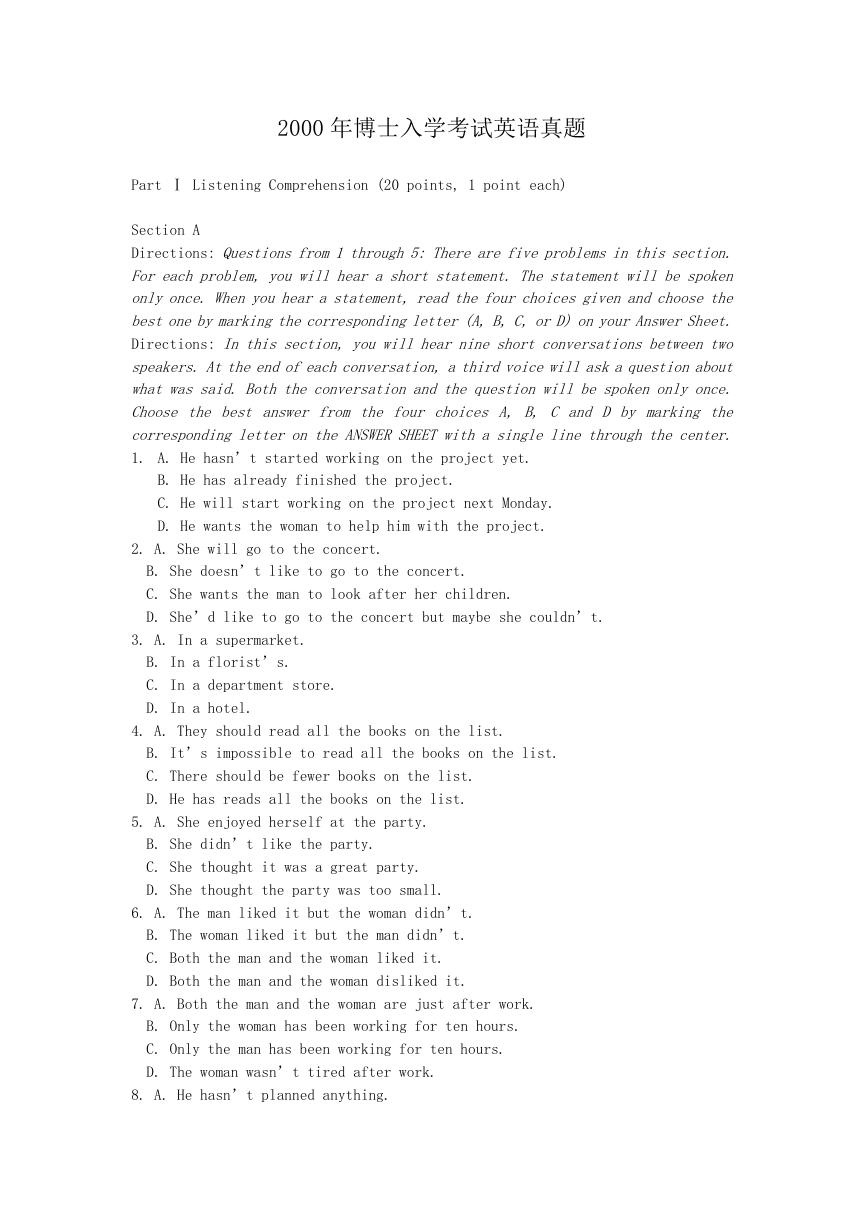
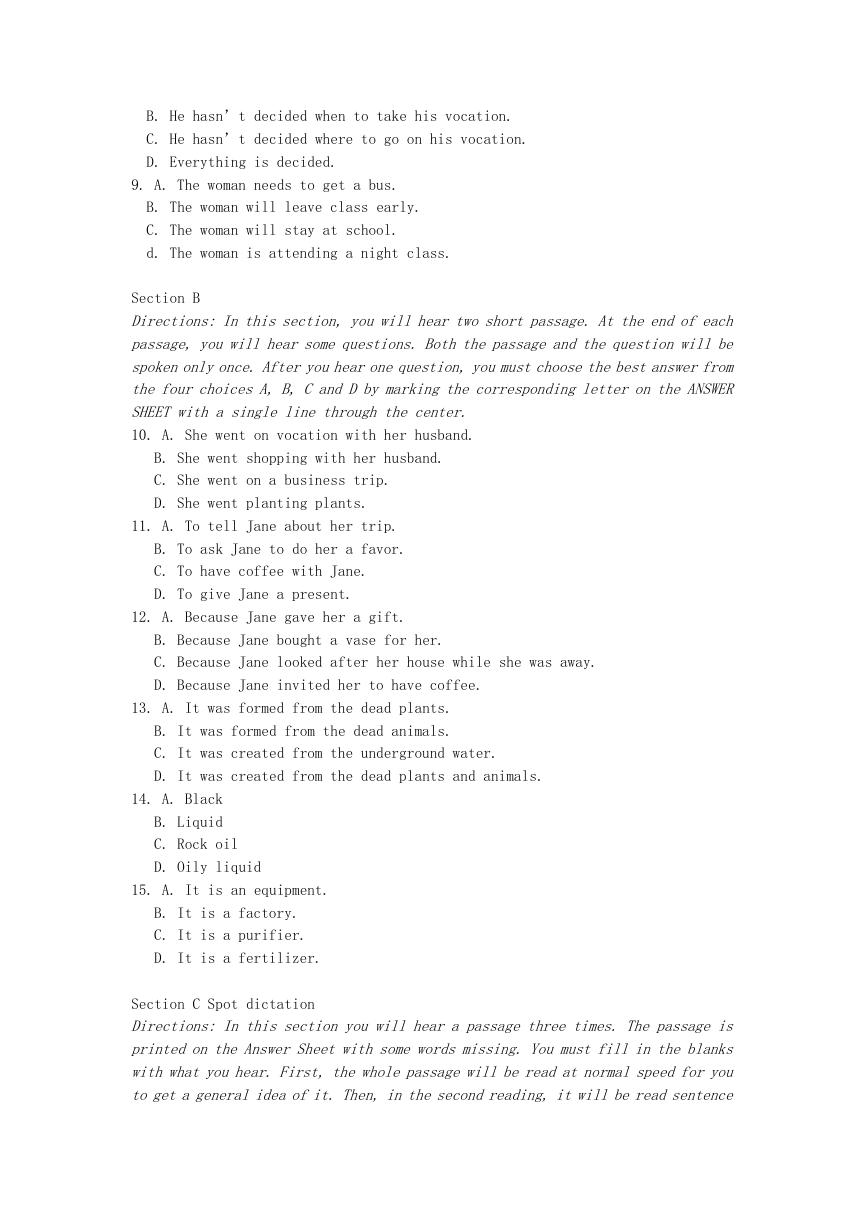

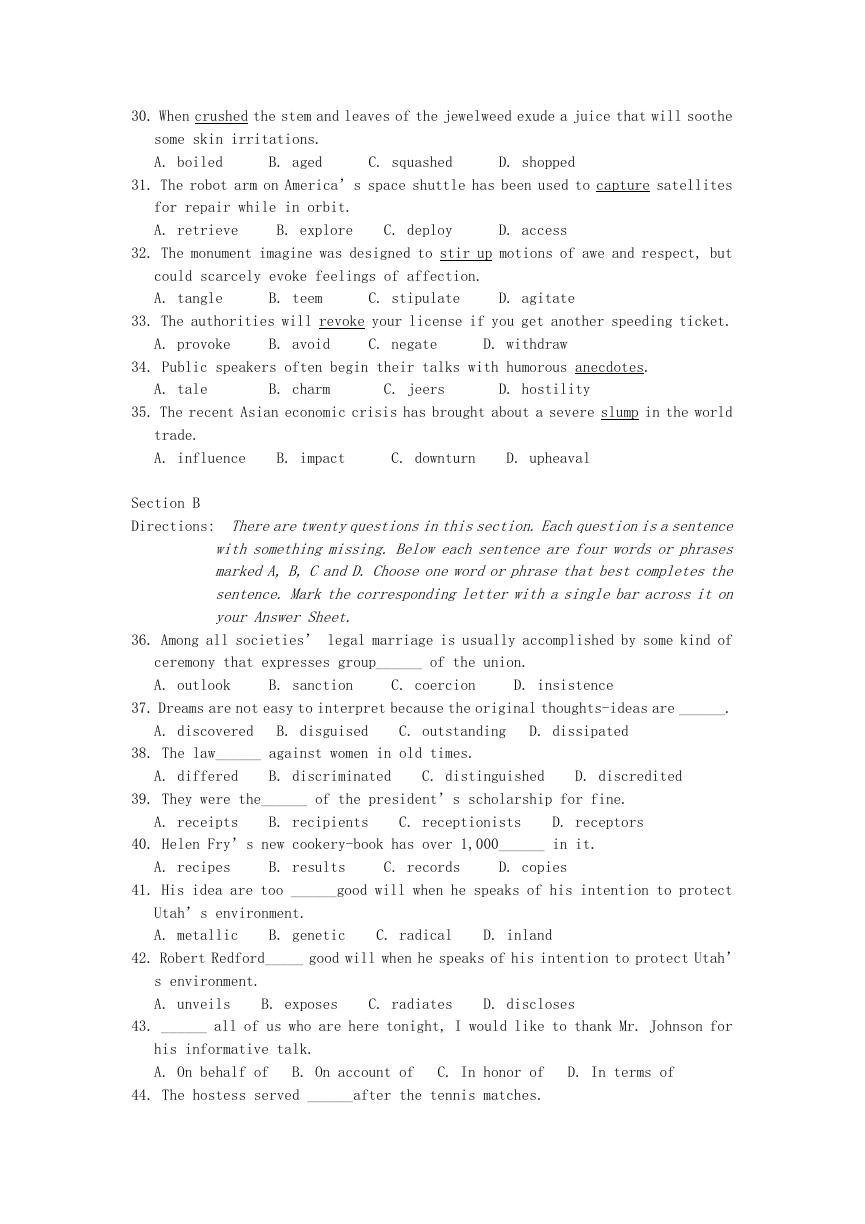
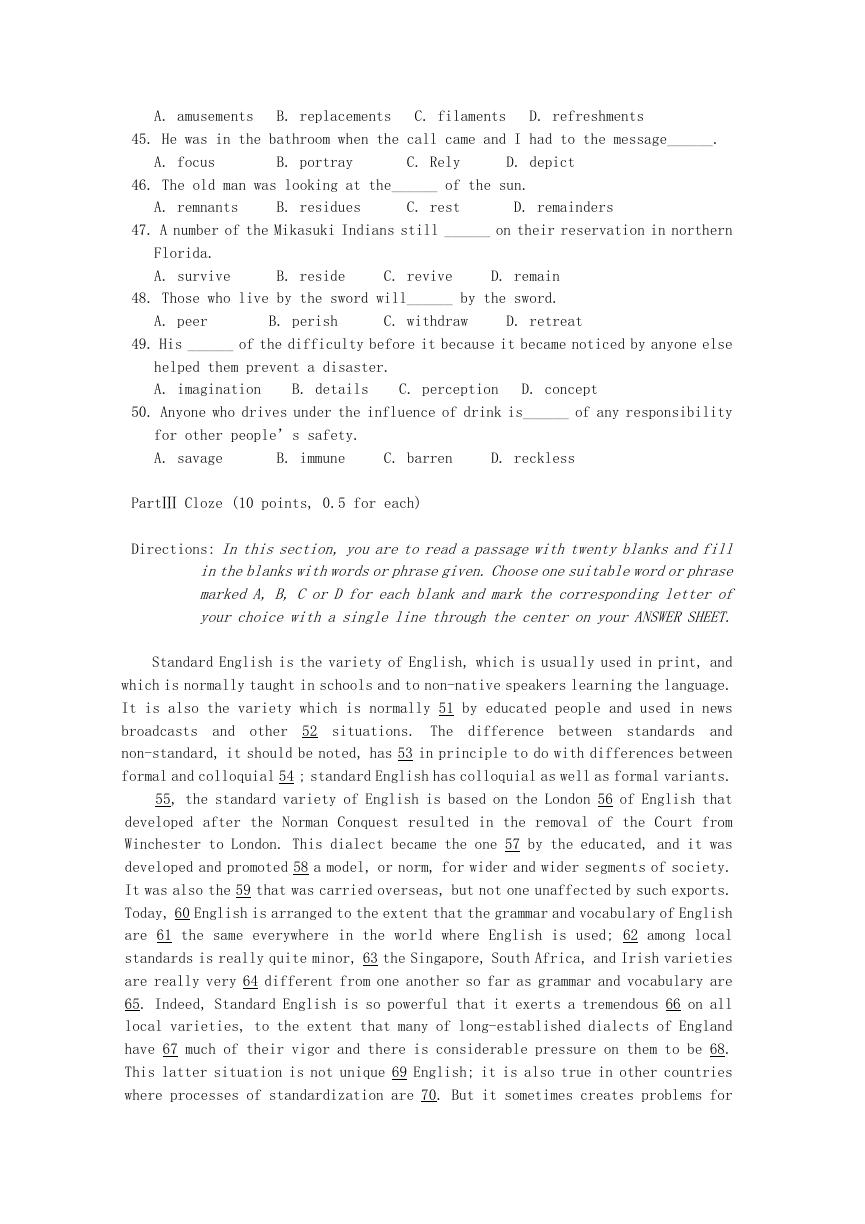
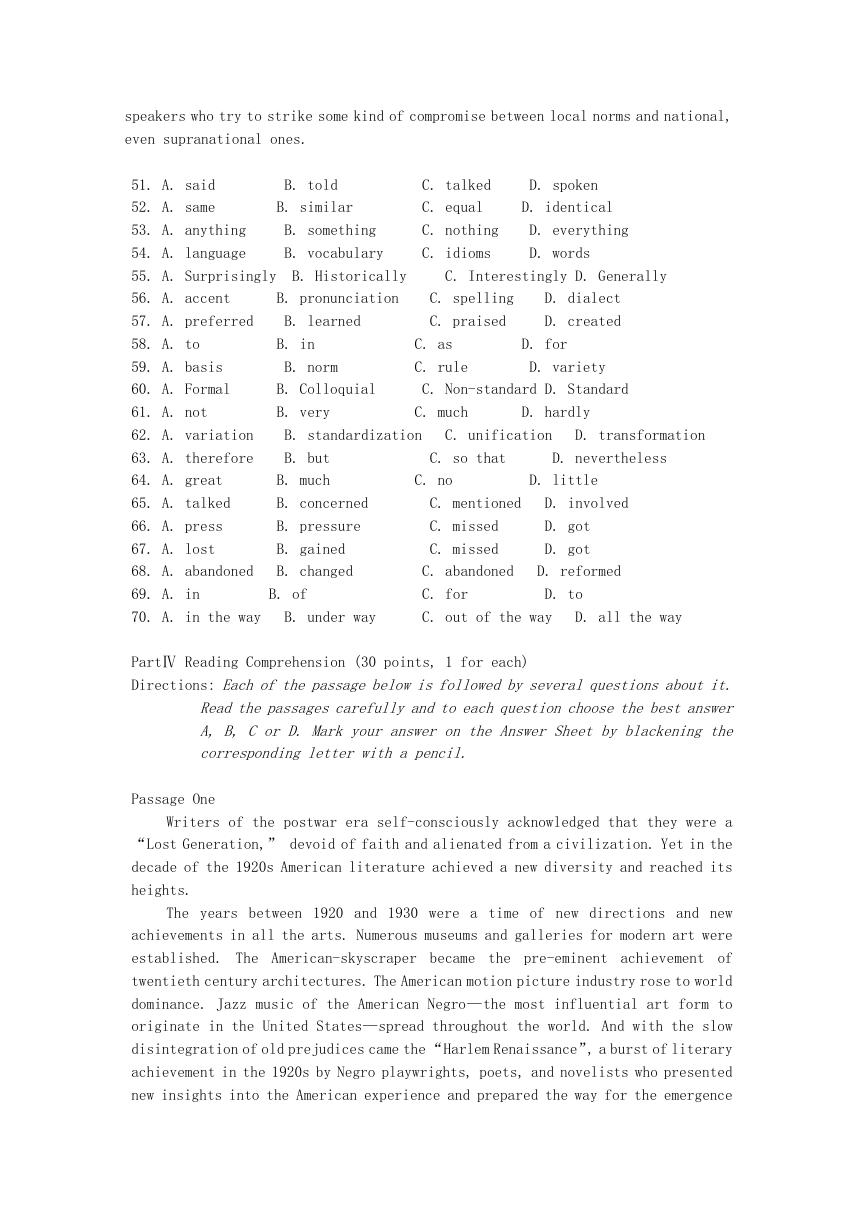
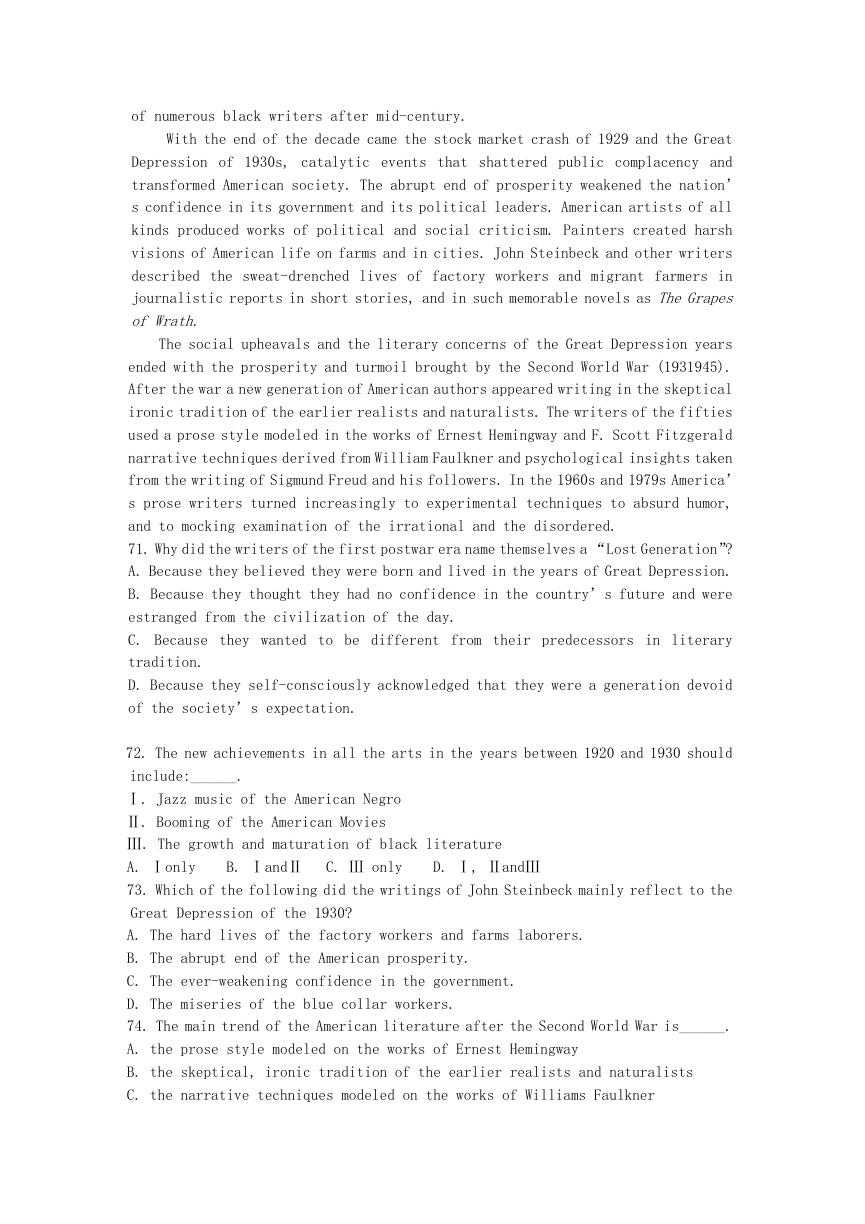
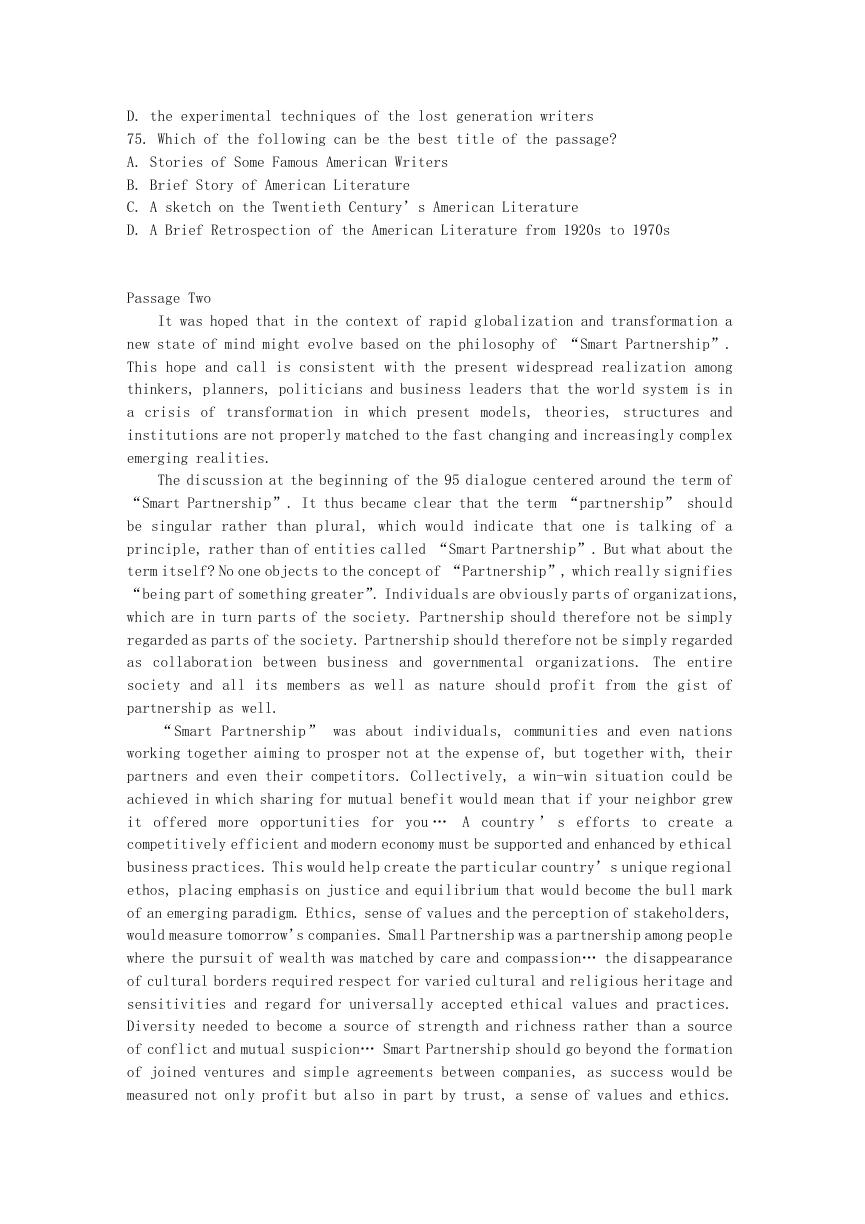








 2023年江西萍乡中考道德与法治真题及答案.doc
2023年江西萍乡中考道德与法治真题及答案.doc 2012年重庆南川中考生物真题及答案.doc
2012年重庆南川中考生物真题及答案.doc 2013年江西师范大学地理学综合及文艺理论基础考研真题.doc
2013年江西师范大学地理学综合及文艺理论基础考研真题.doc 2020年四川甘孜小升初语文真题及答案I卷.doc
2020年四川甘孜小升初语文真题及答案I卷.doc 2020年注册岩土工程师专业基础考试真题及答案.doc
2020年注册岩土工程师专业基础考试真题及答案.doc 2023-2024学年福建省厦门市九年级上学期数学月考试题及答案.doc
2023-2024学年福建省厦门市九年级上学期数学月考试题及答案.doc 2021-2022学年辽宁省沈阳市大东区九年级上学期语文期末试题及答案.doc
2021-2022学年辽宁省沈阳市大东区九年级上学期语文期末试题及答案.doc 2022-2023学年北京东城区初三第一学期物理期末试卷及答案.doc
2022-2023学年北京东城区初三第一学期物理期末试卷及答案.doc 2018上半年江西教师资格初中地理学科知识与教学能力真题及答案.doc
2018上半年江西教师资格初中地理学科知识与教学能力真题及答案.doc 2012年河北国家公务员申论考试真题及答案-省级.doc
2012年河北国家公务员申论考试真题及答案-省级.doc 2020-2021学年江苏省扬州市江都区邵樊片九年级上学期数学第一次质量检测试题及答案.doc
2020-2021学年江苏省扬州市江都区邵樊片九年级上学期数学第一次质量检测试题及答案.doc 2022下半年黑龙江教师资格证中学综合素质真题及答案.doc
2022下半年黑龙江教师资格证中学综合素质真题及答案.doc